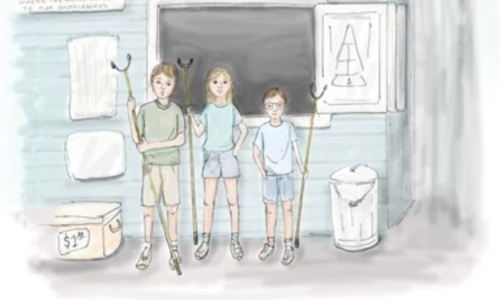It takes us all to help in small ways to become a more sustainable community. In 2024, we’re partnering with the Lakeside Environmental Stewardship Society (LESS) to educate Lakesiders about the Net Zero Goals we plan to achieve.
Zero Pollution and carbon reflects the desire to absolutely minimize pollution of our environment. Clean water, clean air and a healthy environment for all natural forms of life must be improved and maintained. All components that we use should have no lasting harm to the environment.
Zero Energy is part of the goal to minimize carbon dioxide and encourage sustainable energy resources. Lakeside needs to minimize energy consumption and use sustainable energy (solar, wind, hydro, etc.) as much as possible.
Zero Waste reflects the desire to divert all waste from landfills by minimizing consumption, maximizing the useful life of materials and encouraging a virtuous cycle of material use and reuse.
Zero Water reflects the desire both to minimize water use and to minimize and control stormwater runoff. Water usage also translates directly to energy use possible.
In our last update, we talked about what we can do to reduce water consumption and manage stormwater runoff. This week, we’ll cover another important aspect of Zero Water, the control of pollution.
An embarrassing amount of our plastic ends up in Lake Erie where it breaks into very small pieces that aquatic life can mistake for food. These small pieces are in our food chain.
As the plastic breaks down even further, it can no longer be removed by water treatment systems, and it can be found in the water we drink. You can help by…
- Avoiding the use of plastic as much as possible
- Taking reusable cloth shopping bags to buy groceries instead of using plastic
- If you must use disposable dinnerware, look for compostable, or at least paper products
- Avoid using straws unless they’re compostable
- Take prescription and over-the-counter medicines to the Danbury Police Station for proper disposal. Flushing them down the toilet is just like dumping them in the lake because the wastewater treatment plant can’t remove the dissolved medicine
- Avoid fertilizers with phosphate unless you know for sure that your ground needs phosphorus. Ohio banned phosphate lawn fertilizer a decade ago, but you still may need it for flowers or vegetables. The cyanobacteria, the blue-green algae in freshwater that can release strong neurotoxins, depends very much on phosphate growth and eliminating the potential of phosphate runoff is very important
What are other ways you can help Lakeside achieve its Zero Water goal?




